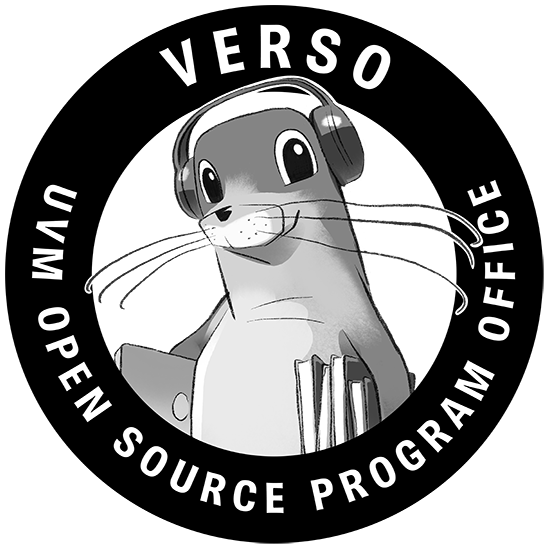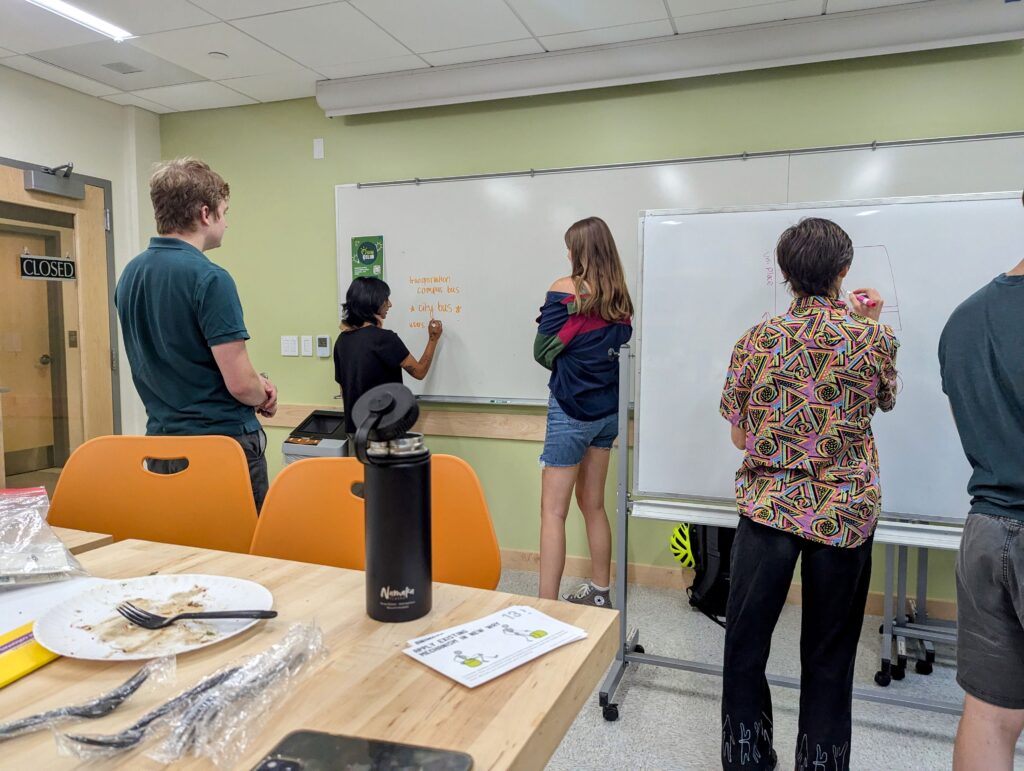
The Open Research Community Accelerator (ORCA) is a student program that grows the impact of academic research by making research products accessible to other academics, local businesses, and community members through open source project. ORCA creates these products through student project teams called Pods — groups of dynamic and passionate students who learn industry open source practices by working on real projects destined for public use. This program is run and funded by the University of Vermont Open Source Program Office (VERSO). ORCA’s goals are to produce impactful, accessible, open source research tools by training tomorrow’s workforce in marketable open source skills.
The Open Research Community Accelerator (ORCA) is a program that connects undergraduate students with faculty, graduate students, and community organizations to work on open source projects with social impact. ORCA Pods, consisting of 4-5 students, collaborate on research projects and develop open source solutions to address community needs. The program provides students with valuable experiential learning opportunities and supports faculty and community organizations in translating their research into practical applications.
The Handbook and How We Work
The best place to start is the ORCA Handbook! This contains an ORCA overview, Employment Policies, UVM Policies, Communication and Marketing, Health and Safety Policies and Resources. How ORCA Works describes how we have approached the ORCA program’s educational importance and impact.
Recruiting and Onboarding
We have tried to lay out some of the materials for hiring students including the job descriptions in Recruiting and we hope to expand this with much more information about how we find and bring new students into ORCA. We also have built onboarding processes but these are still evolving:
Projects
Project selection, onboarding and other resources for those interested in running a project are in the Projects document.
Policies and Plans
There are several stand alone policies that are uniquely applicable to the ORCA Program. These include:
- Emergency Preparedness Plan
- Confidentiality and Data Security Policies
- IT and Data Security Policies
- Intellectual Property Policy
- Code of Conduct
These policies apply to anyone working on an ORCA project, be it paid, for class credit or as a student club volunteer.
Roles
There are multiple leadership roles for students in ORCA:
- Team Lead – Leads a specific ORCA Pod, provides support for pod members and direction for the project
- Team Member – Responsible for project execution including working collaboratively with researchers, and the development of open source software using standard engineering methodology.
- Business Lead – Focused on growth of engagement with activities and marketing initiatives
- Program Lead – Supports the efficiency and reliability of the ORCA pods, volunteers and the digital infrastructure that supports open activities
- Community Lead – Supports the open source community with VERSO and affiliated programs
- Mentor – Supports the growth of the leads and teams to help them meet their goals
Engineering Methodology
The team utilizes an Agile-inspired methodology emphasizing adaptability, collaboration, iterative development and a user-centered design approach. The following meetings will be held during each sprint:
- Sprint Planning: At the beginning of each two-week cycle (sprint), the team members collectively select the tasks they will tackle during that period. They allocate tasks based on individual strengths and project needs.
- Stand-ups: The team gathers for a brief stand-up meeting. Each member shares their progress from the previous standup and any obstacles they’re facing.
- Sprint Review: At the end of each sprint, the team holds a review session to showcase the completed work, this is recorded and shared with project sponsors.
Collaboration and Communication Tools
To facilitate remote collaboration and streamlined communication, the team uses a variety of tools:
- Project Management Software: They utilize project management tools in Github to track tasks, set priorities, and monitor progress.
- Version Control and Collaboration Platform: They use platforms like GitHub for version control.
- Video Conferencing: Microsoft Teams are used for virtual meetings, discussions, and brainstorming sessions.
- Communication Channels: The team maintains communication channels through Slack for quick updates, questions, and sharing resources.
- Documentation: Detailed documentation for each project, including technical specifications, coding standards, and user guides, is maintained throughout the development process.
- Knowledge Transfer: When new team members join or as existing ones take on different roles, there’s an organized knowledge transfer process to bring everyone up to speed on ongoing projects. Additionally an Open Source Resource Library (GitHub Repo) where students can build out useful documentation to support the team.
- ORCA Rules and Structure: The overall operations of the ORCA program are created with students as collaborators, designed to change to fit the program as needed. The GitHub Page: https://verso-uvm.github.io/ORCA/
Projects
Vermont Zoning Atlas (VTZA)
https://github.com/VERSO-UVM/VT_Zoning_Atlas
The Vermont Zoning Atlas (VTZA) Pod will creates a state-wide Zoning Atlas (following the standards of the National Zoning Atlas) that will encompass all of Vermont’s 237 towns, 10 cities, 5 unincorporated areas, and 4 gores in collaboration with the 11 regional planning commissions of VAPDA and various State of Vermont Agencies. The Pod will be working on building out the data for towns, validating data and building programming tools to assist in the work of maintaining the Zoning Atlas.
The Vermont Zoning Atlas is a web-based geospatial interface that visualizes zoning code distributions across all of Vermont. Zoning rules can present barriers to effective city planning, impairing our ability to achieve important policy objectives like community desegregation, climate change resiliency, transportation access, homelessness relief, and affordable housing development. The Vermont Zoning Atlas seeks to democratize researchers’, policymakers’, advocates’, and everyday citizens’ understanding of zoning regulations and enable apples-to-apples cross-jurisdiction comparisons through a methodology developed by our partner, the National Zoning Atlas. Without this tool, one would have to read thousands of pages of dense legal code to answer simple questions – this is why we believe our tool will democratize zoning policy and make it possible for advocates and researchers to identify barriers to things like affordable housing development, climate resiliency, and community desegregation more quickly.
UVM Research Partner: Yoshi Bird
News: Housing Forward Virginia – Zoning Atlases Across the Map: Vermont, August 24, 2023
Wastewater Infrastructure Mapping (WIM)
The project is in collaboration with the following:
Heard & Understood App (HUA)
https://github.com/VERSO-UVM/Heard-and-Understood-App
The Heard and Understood App provides a way to explore and classify silence and gaps in conversations. This is an Open Community Research Accelerator (ORCA) project in collaboration with the Vermont Conversation Lab and their GitHub organization Heard & Understood(tm). This supports the exploration and adoption of the CONSert (Connectional Silence Ensemble-BERT) algorithm which uses a combination of Random Forests, Convolutional Neural Networks, OpenAI Whisper Transcriptions and a BERT ML model to detect, locate and classify pauses. Pauses will be classified as either Non-Connectional, Emotional, or Invitational.
Pause Types:
- Non-Connectional – a pause that does not provide connectional context for the rest of the conversation
- Emotional – a pause which provides time for emotional reflection
- Invitational – a pause that invites another speaker to interact with the conversation
The methods used in this package are based on the methods used in Matt et al. 2023.
Matt et al. 2023: Matt, Jeremy E et al. “An Acoustical and Lexical Machine-Learning Pipeline to Identify Connectional Silences.” Journal of palliative medicine, 10.1089/jpm.2023.0087. 13 Jul. 2023, doi:10.1089/jpm.2023.0087
Interactive Management App
(Fall 2023 – Spring 2024)
The Interactive Management App project will design and build an open source tool for conducting Interpretive Structural Modeling (ISM) research with participants. The Interactive Management App will produce a flow diagram that helps a group of people solve a collective problem. The app will take in a list of factors identified by research participants that affect a specific problem. It will then work with participants to figure out the relationships between factors (things that impact their ability to act). An algorithm will then determine which factors should be addressed first, second, and so on in order for the group to meet their goals. This tool will be used in Thriving in Open Source Communities in Africa.
Sponsor: John Meluso
Project GitHub: https://github.com/VERSO-UVM/interactive-management-app
Repo: https://github.com/VERSO-UVM/interactive-management-app
Tasks: https://github.com/orgs/VERSO-UVM/projects/1/views/1
UVM Research Partner: John Meluso
The Interactive Management App project will design and build an open source tool for conducting Interpretive Structural Modeling (ISM) research with participants. The Interactive Management App will produce a flow diagram that helps a group of people solve a collective problem. The app will take in a list of factors identified by research participants that affect a specific problem. It will then work with participants to figure out the relationships between factors (things that impact their ability to act). An algorithm will then determine which factors should be addressed first, second, and so on in order for the group to meet their goals.
This tool will be used in Thriving in Open Source Communities in Africa.
The Team

Alyssa Maguire
I am Alyssa - I'll be leading our ORCA pod for this fall. I have experience as a software engineer in the insurance industry - at Nationwide Mutual Insurance - and as a TA for several undergraduate CS courses at UVM. I feel FOSS is the best way I can nurture the world around me for the better, and I am eager to use my skillset to activate positive change with ORCA. Outside campus I climb at Metrorock, scuba dive with the Waterfront Dive Center and relax at Oakledge Park. I am excited to contribute to something meaningful and lasting!
My GitHub

James Catanzaro
My name is James Catanzaro and I am a junior at UVM studying data science. I enjoy using data to tackle societal assumptions and uncover hidden truths about the world. When I'm not busy with school, I love to read classic literature, watch old movies, and ride my bike. I am excited to be apart of the pilot project this fall!
My GitHub

Sebastian Thomas
My name is Sebastian Thomas. I’m a senior at UVM studying Computer Science. I’m originally from Redlands, California but grew up in South Burlington. Whenever I have the time, I like to snowboard and play soccer. I’m super excited to be a part of this project!
My GitHub
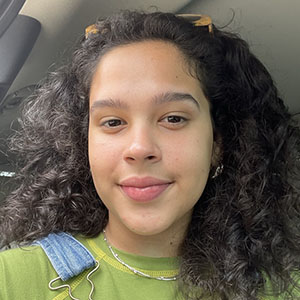
Fernanda De Oliveira Girelli
Hi, my name is Fernanda and I'm a junior majoring in computer science. Ordinally I'm from Elizabeth, New Jersey but I've been living in Burlington for a while now and I'm loving it! I'm so excited for this new opportunity and can't wait to get started.
My GitHub
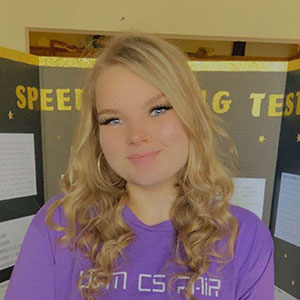
Grace Kinney
My name is Grace Kinney and I am a Junior at UVM studying Computer Science. I am passionate about website development and robotics. During my free time I enjoy listening to music, painting on canvas, reading fantasy novels, and spending time with my loved ones. Fun fact: my favorite ice cream flavor is Ben&Jerry’s Phish Food!
My GitHub

Tushar Asthana
I am a senior at UVM studying Computer Science. I’m originally from India, but grew up in South Burlington for the past 16 years. I enjoy playing tennis for the Club Tennis team at UVM and enjoy reading fiction books on the weekends when I'm not doing homework! Really excited for this pilot project to start!
My Github

Zoe Srede
My name is Zoe Sreden, I am from Maine and am currently a senior at the University of Vermont. I am a Geography major with minors in Global Studies, Community and International Development, and Green Building and Community Design. I am focusing my studies on urban planning and sustainable development, and have interned with Chittenden County Regional Planning Commission previously.
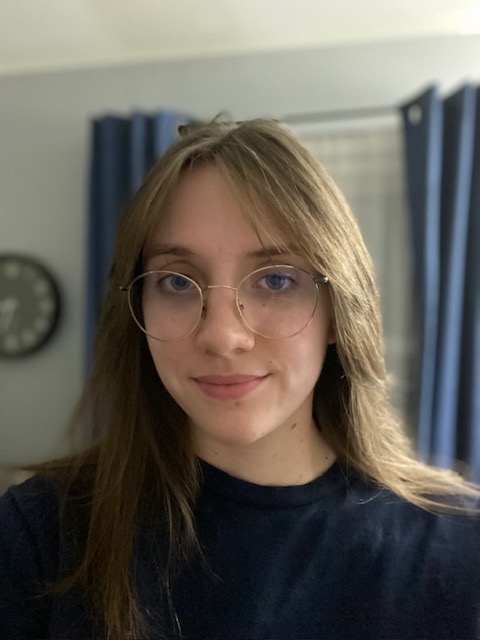
Emma Eash
I'm Emma and I'm a junior studying Environmental Sciences with a minor in Geospatial Technologies. I enjoy learning how to apply technical skills like GIS to environmental issues. In my free time I love reading fiction or fantasy books and gaming. I'm looking forward to working on this project and learning new things!

Anoushka Pschorr
Anoushka Pschorr is currently a Junior at UVM studying Community-Centered Design. She has been an intern for the Burlington Department of Public Works for over a year and is looking to pursue urban planning. She is a native of Vermont, and enjoys the balance of urban and rural spaces in Burlington.
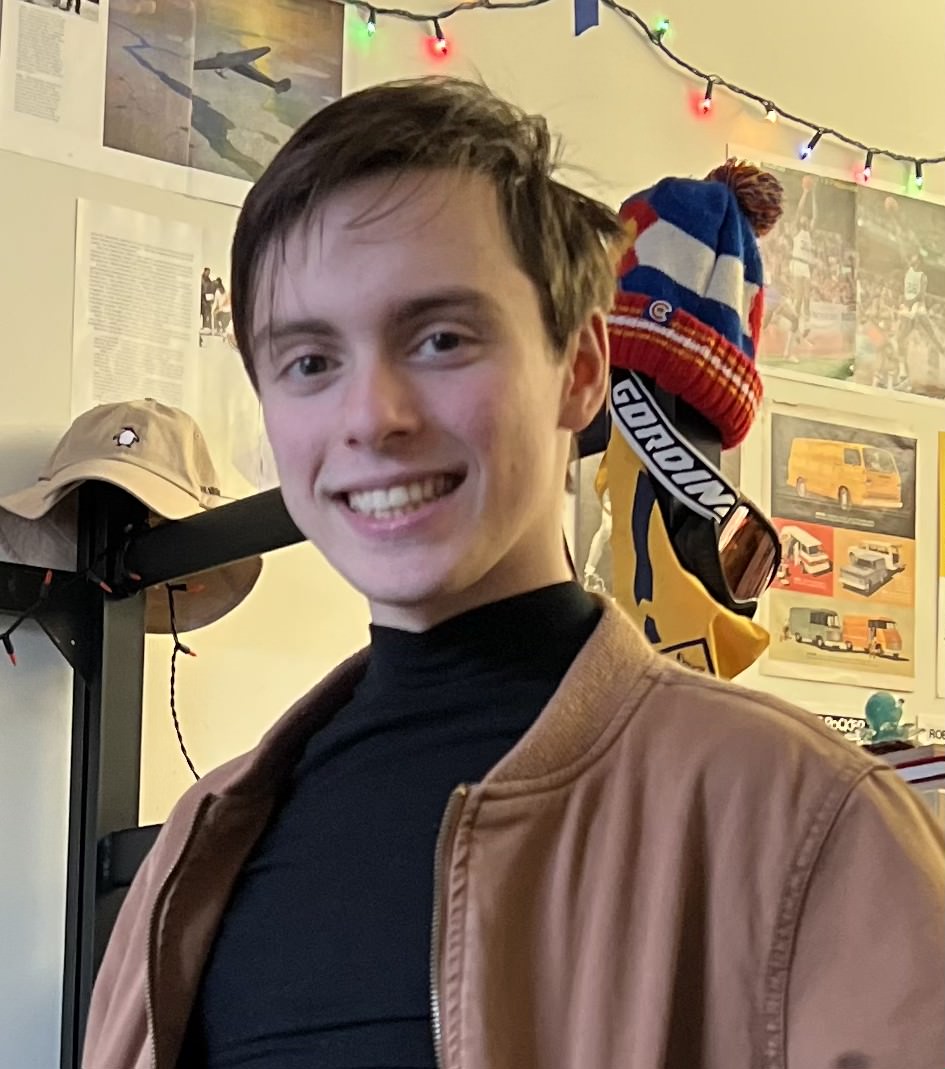
Zachary Winigrad
My name is Zachary Winigrad, and I am a sophomore double majoring in Environmental Science and Applied Ecology. I come from New Jersey, but the past two years in Vermont have been phenomenal! I am very excited to utilize my GIS skills with VTZA this spring!
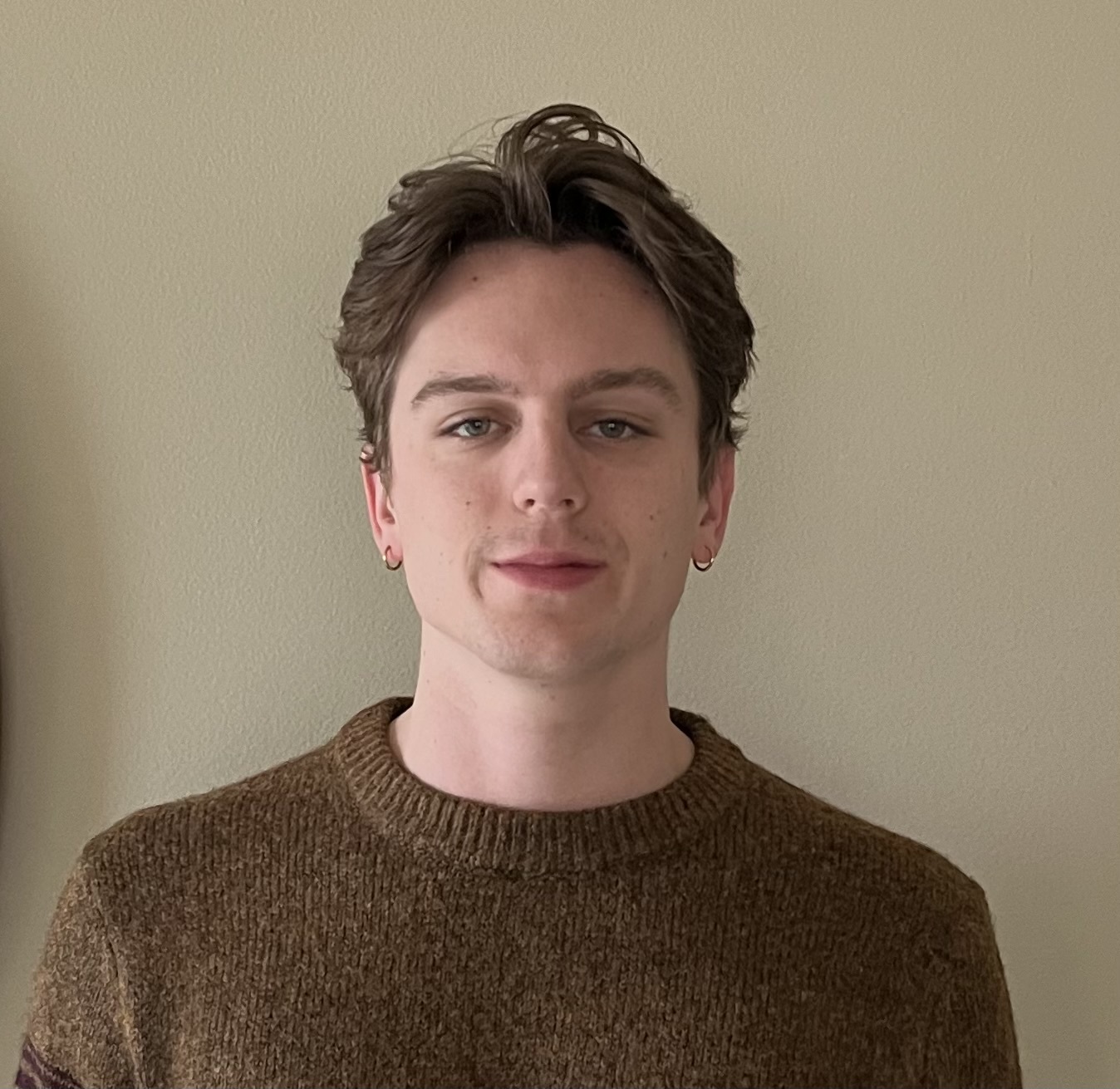
Tucker Schulz
Hi, my name is Tucker Schulz. I am a Junior at UVM majoring in Computer Science and I am from Grand Rapids, Michigan. Outside of classes I enjoy snowboarding, rock climbing, and reading fiction. I am super excited for another semester as well as the opportunity to start on the VT Atlas project.
Current Team

Team Lead ISM - Tushar Asthana (he/him)
I am a senior at UVM studying Computer Science. I’m originally from India, but grew up in South Burlington for the past 16 years. I enjoy playing tennis for the Club Tennis team at UVM and enjoy reading fiction books on the weekends when I'm not doing homework!

Team Lead VTZA - Zoe Srede (she/her)
My name is Zoe Sreden, I am from Maine and am currently a senior at the University of Vermont. I am a Geography major with minors in Global Studies, Community and International Development, and Green Building and Community Design. I am focusing my studies on urban planning and sustainable development, and have interned with Chittenden County Regional Planning Commission previously.

Business Lead - Ruby Blunt (she/her)
I am a junior at UVM studying marketing, accounting, and sustainability, with a minor in sociology. My interest is in how stories and numbers influence people’s behavior which drives my goal of positively contributing to organizations and the planet. I’m from New York and love trying new things and meeting new people!

Program Lead - Jay Lobell (he/him)
My name is Jay Lobell and I am in the accelerated master's program for complex systems & data science. I'm also currently working for Dr. Sarah Nowak as a research assistant to analyze parental vaccine hesitancy. Outside of class you can find me reading science fiction novels, making music, skiing, and playing video games. I'm very grateful to be selected as the project lead intern, and I can't wait to get started!
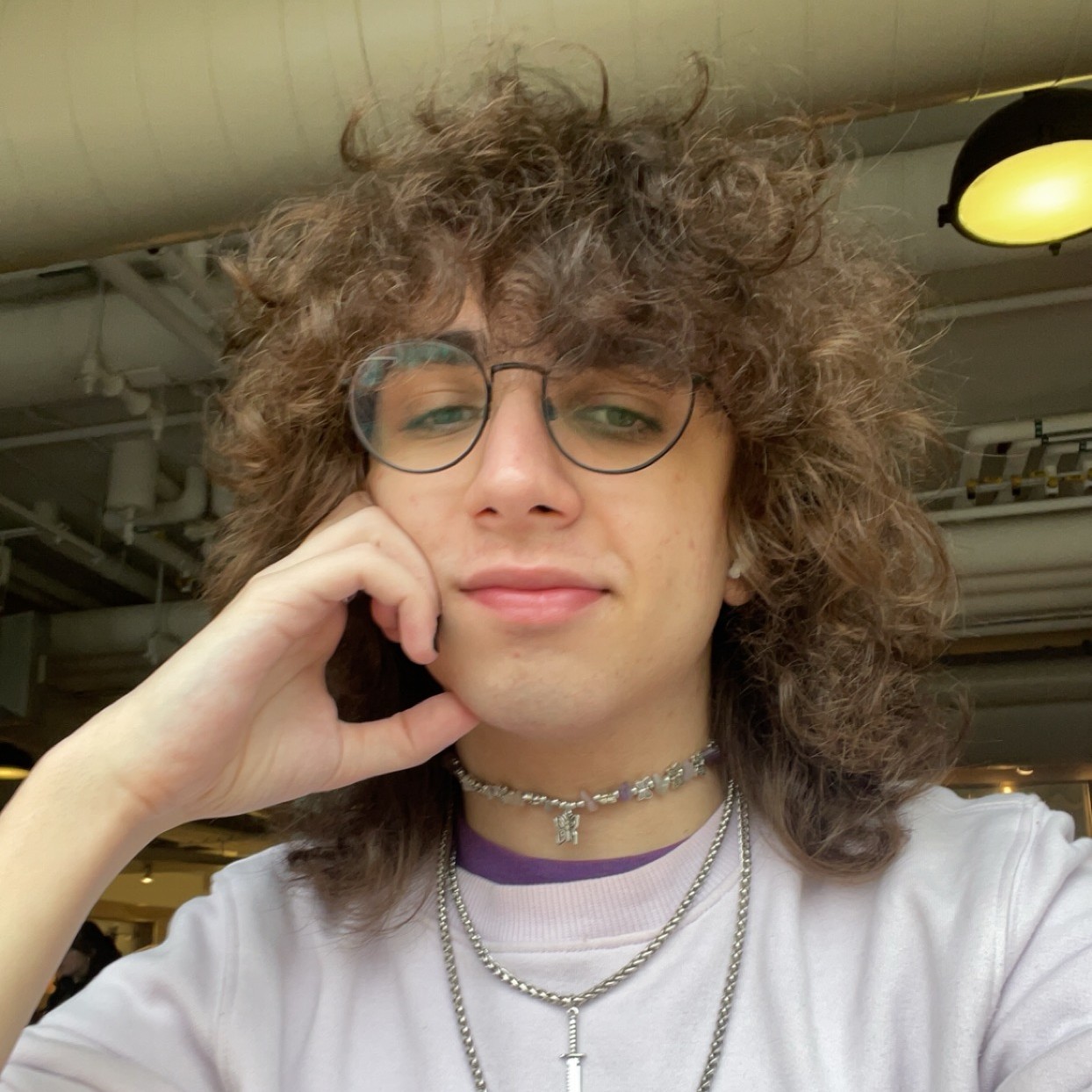
Community Lead - Tobey Vorus (she/the)
I am currently a freshman at UVM, majoring in Computer Science. Outside of class, I spend much of my time contributing to open-source projects, doing system administration, reading, listening to music, and generally nerding out about anything networking. I look forward to supporting and expanding the open-source community at UVM!

Mentor - Nate Gaylinn (he/him)
Nate Gaylinn has over a decade of experience working for Google Search as a software engineer, tech lead, and manager. He's now a grad student at UVM, and eager to share his tech industry experience as a mentor for the ORCA program
